MercoPress. South Atlantic News Agency
Tag: 2014 FIFA World Cup
-
Wednesday, June 19th 2013 - 06:07 UTC
Rousseff admits protestors grievances, praises democracy and meets Lula da Silva

As the threat of massive protests in Brazil’s major cities continues, President Dilma Rousseff early Tuesday tried to defuse the situation by acknowledging the need for better public services, more responsive governance and at the same time praising Brazilians commitment to a strong democracy.
-
Tuesday, June 18th 2013 - 15:12 UTC
UN human rights commissioner calls on Brazil to react with moderation to social protests
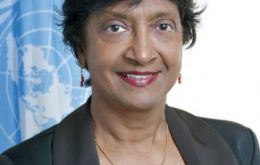
United Nations Human Rights Commissioner Navi Pillay has asked Brazilian authorities to react with moderation to the social protests that have spread through out the country and at the same time has called on demonstrators to avoid using violence to get their message heard.
-
Tuesday, June 18th 2013 - 07:27 UTC
Protests in Brazil against profligate spending and poor services extend to major cities

Demonstrators clashed with police in central Rio do Janeiro on Monday evening as more than 200,000 people turned out to the streets of major Brazilian cities to protest the billions of dollars spent on the Confederations Cup, higher public transport costs, corruption and poor services.
-
Monday, June 17th 2013 - 07:01 UTC
Brazilian protestors clash over excessive expenditure in World Cup stadiums
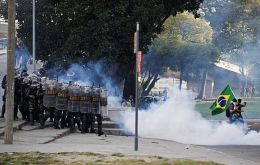
Police deployed tear gas and rubber bullets to disperse around 3,000 protestors from outside Rio de Janeiro's Maracana stadium ahead of the Confederations Cup match between Italy and Mexico on Sunday.
-
Saturday, June 15th 2013 - 03:56 UTC
FIFA expresses ‘full confidence’ Brazil can manage disorders in the streets

After violent protests in three cities heading into the warm-up event for the 2014 World Cup, FIFA expressed ''full confidence'' on Friday that Brazilian authorities have shown they can manage disorder in the streets.
-
Friday, June 14th 2013 - 08:19 UTC
Countdown for 2014 World Cup takes off with simultaneous events in Rio, Sao Paulo and Brasilia
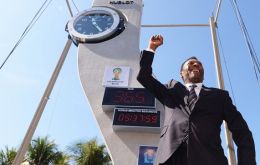
The countdown to 2014 FIFA World Cup Brazil officially began this Wednesday 12 June. Simultaneous events in the cities of Rio de Janeiro, Sao Paulo and Brasilia celebrated the unveiling of a clock marking the time remaining to the opening game of Brazil 2014.
-
Tuesday, June 4th 2013 - 04:56 UTC
Brazil shields borders with state of the art scanners and drones, ahead of major global events

Brazilian President Dilma Rousseff announced this week plans to strengthen the fight against cross-border organized crime by equipping state and local governments with high-tech scanners and surveillance equipment.
-
Tuesday, May 28th 2013 - 05:57 UTC
Brazil World Cup 2014: heavy rain tears through roof a newly constructed stadium
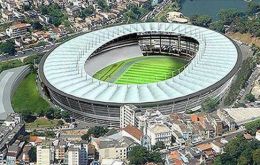
Heavy rains in the Brazilian north-eastern city of Salvador tore through the roof of a newly constructed stadium for Confederations Cup soccer games starting next month, a warm-up before Brazil hosts the World Cup next year.
-
Friday, May 24th 2013 - 06:17 UTC
Drug trafficker in Rio challenge authorities and the pacifying campaign in favelas
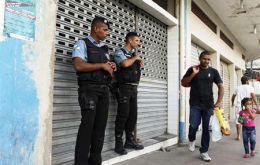
Drug traffickers in Rio de Janeiro ordered shops closed in one of its biggest slums, defying efforts to restore order to the city's vast shantytowns and renewing safety concerns in Brazil as it prepares to host the World Cup and Olympics.
-
Monday, May 20th 2013 - 00:16 UTC
FIFA guarantees that Sao Paulo World Cup stadium will be ready on time
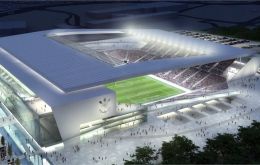
FIFA secretary general Jerome Valcke has guaranteed Sao Paulo's World Cup football stadium will be ready on time, one day after claiming the venue could be taken off the tournament schedule due to construction delays.
